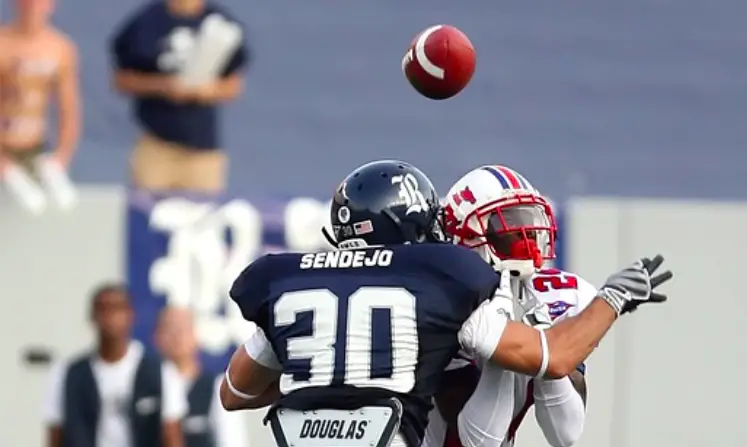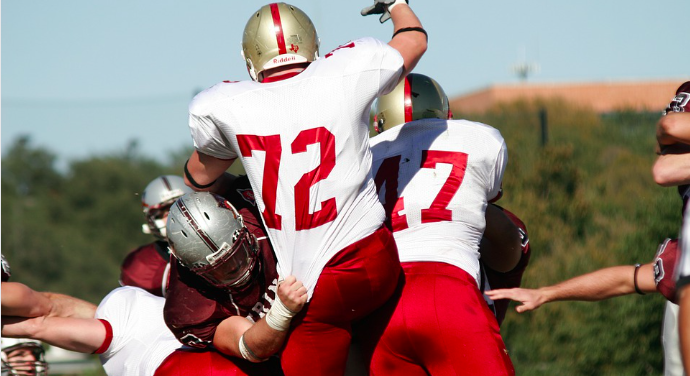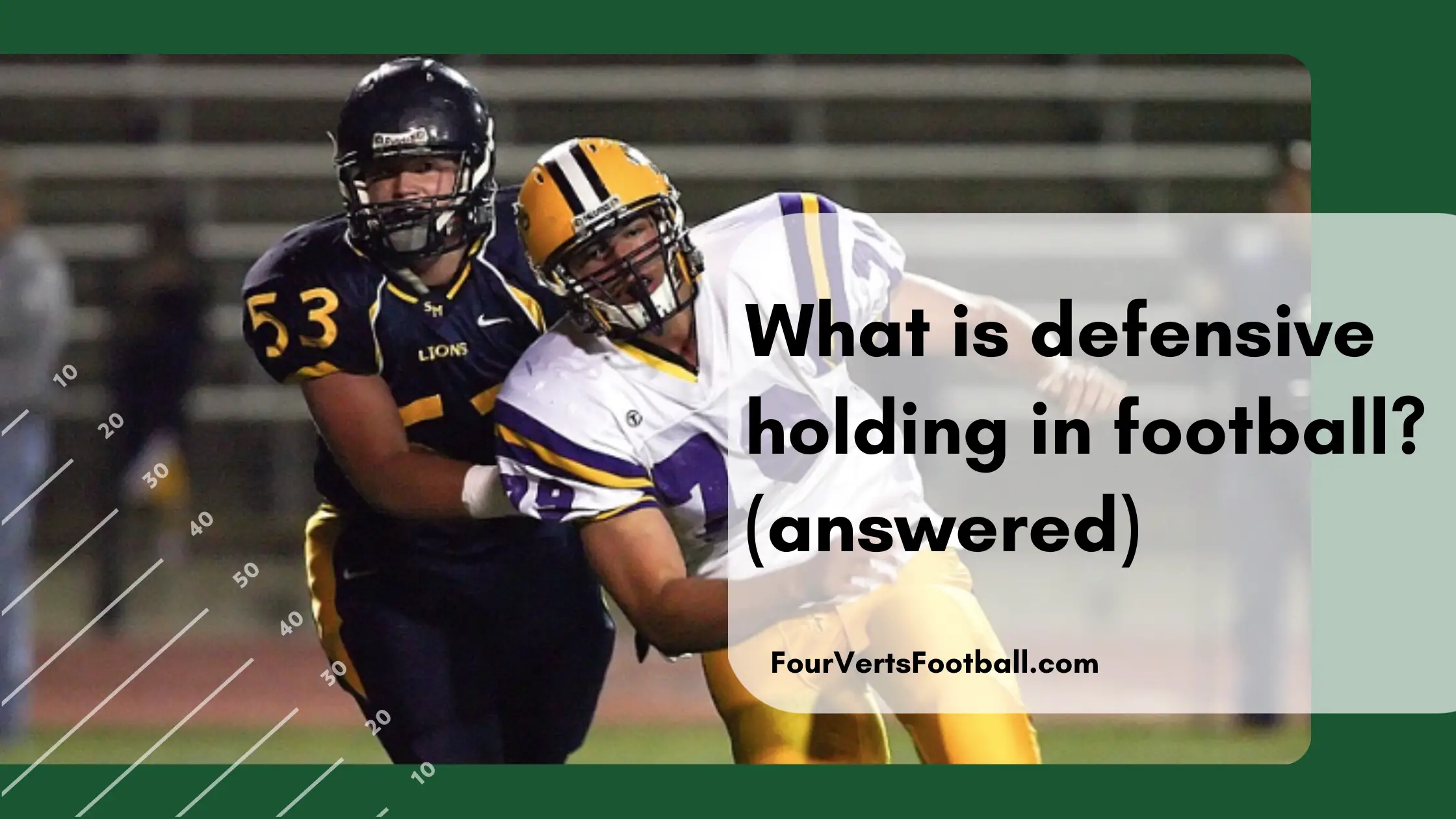Holding penalties can be a backbreaker for a defense. These penalties result in an automatic first down for the offense. This leaves some fans wondering what their players did to earn this penalty.
Defensive holding is called when an eligible receiver is grabbed, or restricted by a defensive player’s arms/hands. This penalty results in a loss of five yards and an automatic first down.
Throughout this article, I’ll go into depth on what sort of contact results in a defensive holding penalty. I will also explain how this penalty can be called when defensive players hold onto offensive blockers.
When are defensive holding penalties called?
Holding penalties are called when a defensive player restricts a receiver from freely running his route. Some contact is allowed by defensive backs on receivers but grabbing or holding is not.
If the officials find that the defensive player has grabbed the receiver’s body or held his jersey then a holding penalty should be called.
The NFL rulebook contains this definition of defensive holding.
“It is defensive holding if a player grasps an eligible offensive player (or his jersey) with his hands, or extends an arm or arms to cut off or encircle him.”
– NFL Rulebook Rule 8, Section 4, Article 6
Additionally, defensive backs are known to restrict receivers by “pulling” their hips or restricting them with their arms.
Any sort of significant physical contact like this will result in defense holding. When this contact occurs the receiver is not able to effectively run his route.
I believe this is why an automatic first down is given on these plays. Since the receiver did not even have a chance to get open a holding call could prevent a huge play from happening.
By giving out an automatic first down defensive players cannot intentionally take this penalty each time they are about to be beaten by a wide receiver for more than five yards.
Defensive Holding vs Defensive Pass Interference

Defensive holding penalties are generally called when the quarterback has not yet thrown the ball. In contrast, defensive pass interference penalties are called after a pass has been thrown.
These holding penalties are less severe than defensive pass interference because they only result in a loss of five yards.
Pass interference is called as a spot foul which means the offense will move to the location the foul took place.
That is unless they are too close to the goal line, in which they may only travel half the distance to the goal.
An easy way to distinguish these penalties is to consider one stops a receiver from getting to the ball while the other stops them from running their route.
Pass interference involves the defender stopping the receiver from getting the ball. While holding generally involves restricting the player from moving freely before the ball is thrown.
Defensive holding on blockers

Holding penalties can be called for more than restricting eligible receivers. On special teams, this penalty can be called when attempting to block a kick.
This occurs when one defensive player grabs hold of a blocker and pulls him out of position. The purpose behind this is to open a gap for another defender to rush through.
Rushing in this gap is going to provide a clear lane to the kicker or quarterback. For this reason, a defensive player pulling a blocker out of the way results in a defensive holding penalty.
The result of this penalty is the same as when it is called on a player in pass coverage. There will be a loss of five yards and an automatic first down.
This can be an especially devastating penalty to take on a field goal as the offense will be given another opportunity to put the ball in the endzone.
Conclusion
A defensive holding penalty in football is going to be called when a defensive player holds or restricts a player on the offense.
These penalties are generally called on defensive backs attempting to cover receivers. Though they can also be called when a defensive player grabs or hold an offensive player looking to make a block.
These penalties always result in a loss of five yards for the defense and an automatic first down.

